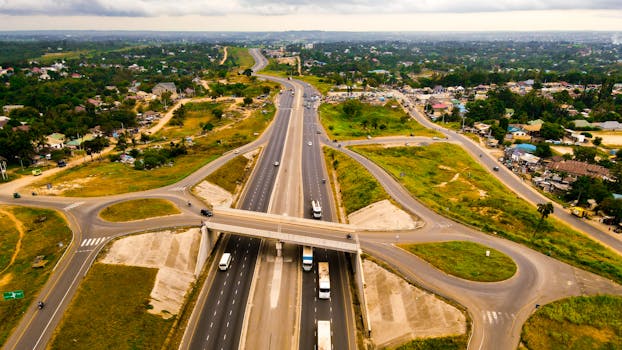The Rise of Fiber Companies in Africa: Connecting a Continent – Fiber Optics & Connectivity

The Rise of Fiber Companies in Africa: Connecting a Continent – Fiber Optics & Connectivity
The rise of fiber companies in Africa is transforming the continent’s connectivity landscape. With increased investment and infrastructure development, fiber optic networks are expanding rapidly, bridging the digital divide and unlocking economic growth. Fiber Optics & Connectivity have become essential for the development of Africa, and companies are investing heavily in this sector.
Africa has long been plagued by a lack of reliable and high-speed internet connectivity, hindering economic growth and social development. However, with the advent of fiber optic technology, the continent is witnessing a significant shift in its connectivity landscape. Fiber companies are investing heavily in building and expanding fiber optic networks, providing fast and reliable internet connectivity to millions of Africans.
Section 1: Introduction to Fiber Companies in Africa
The rise of fiber companies in Africa can be attributed to the increasing demand for high-speed internet connectivity. As the continent’s economy grows, the need for fast and reliable internet has become essential for businesses, governments, and individuals. Fiber companies have responded to this demand by investing in building and expanding fiber optic networks. Companies such as Liquid Telecom, MTN, and Vodacom are leading the charge in providing fiber optic connectivity to Africans.
According to a report by the International Telecommunication Union (ITU), the number of fiber optic subscriptions in Africa has increased significantly over the past few years. The report states that the number of fiber optic subscriptions in Africa grew from 1.3 million in 2015 to 6.4 million in 2020. This growth is expected to continue, with the ITU predicting that the number of fiber optic subscriptions will reach 15 million by 2025.
Section 2: Benefits of Fiber Optic Connectivity in Africa
The expansion of fiber optic networks in Africa has numerous benefits for the continent. One of the primary benefits is the creation of jobs. The construction and maintenance of fiber optic networks require a significant workforce, providing employment opportunities for thousands of Africans. Additionally, fiber optic connectivity has enabled businesses to operate more efficiently, increasing productivity and competitiveness.
Fiber optic connectivity has also improved access to education and healthcare. With fast and reliable internet, students can access online educational resources, and patients can consult with doctors remotely. This has improved the quality of education and healthcare services in Africa, bridging the gap between urban and rural areas.
The growth of e-commerce in Africa is another significant benefit of fiber optic connectivity. With fast and reliable internet, online businesses can operate efficiently, providing consumers with a wide range of products and services. This has increased consumer choice and competition, driving economic growth and development.
Section 3: Challenges Facing Fiber Companies in Africa
Despite the benefits of fiber optic connectivity, there are several challenges facing fiber companies in Africa. One of the primary challenges is the high cost of building and maintaining fiber optic networks. The cost of laying fiber optic cables, particularly in rural areas, is significant, making it challenging for companies to provide connectivity to these areas.
Another challenge facing fiber companies is the lack of infrastructure. In many African countries, the lack of infrastructure, such as roads and electricity, makes it difficult to build and maintain fiber optic networks. This has limited the expansion of fiber optic networks, particularly in rural areas.
The regulatory environment is another challenge facing fiber companies in Africa. In some countries, the regulatory framework is unclear or restrictive, making it challenging for companies to operate. This has limited investment in the sector, hindering the growth of fiber optic networks.
Section 4: Conclusion and Future Outlook
In conclusion, the rise of fiber companies in Africa is transforming the continent’s connectivity landscape. With increased investment and infrastructure development, fiber optic networks are expanding rapidly, bridging the digital divide and unlocking economic growth. While there are challenges facing fiber companies, the benefits of fiber optic connectivity far outweigh the costs.
The future outlook for fiber companies in Africa is positive. As the demand for high-speed internet connectivity continues to grow, fiber companies will play an essential role in providing fast and reliable internet connectivity to Africans. With the right regulatory framework and investment, the growth of fiber optic networks will continue, driving economic growth and development in Africa.




